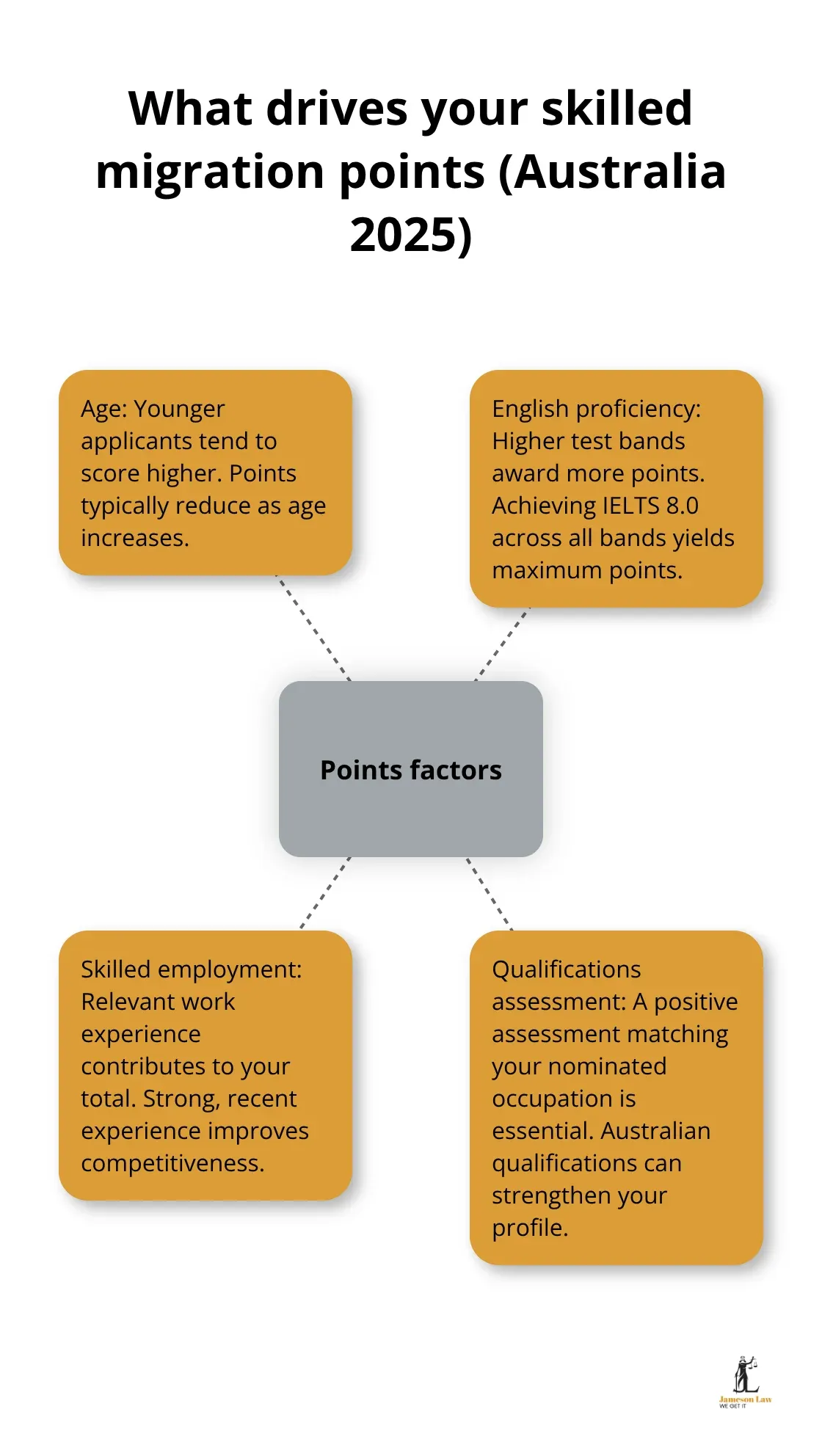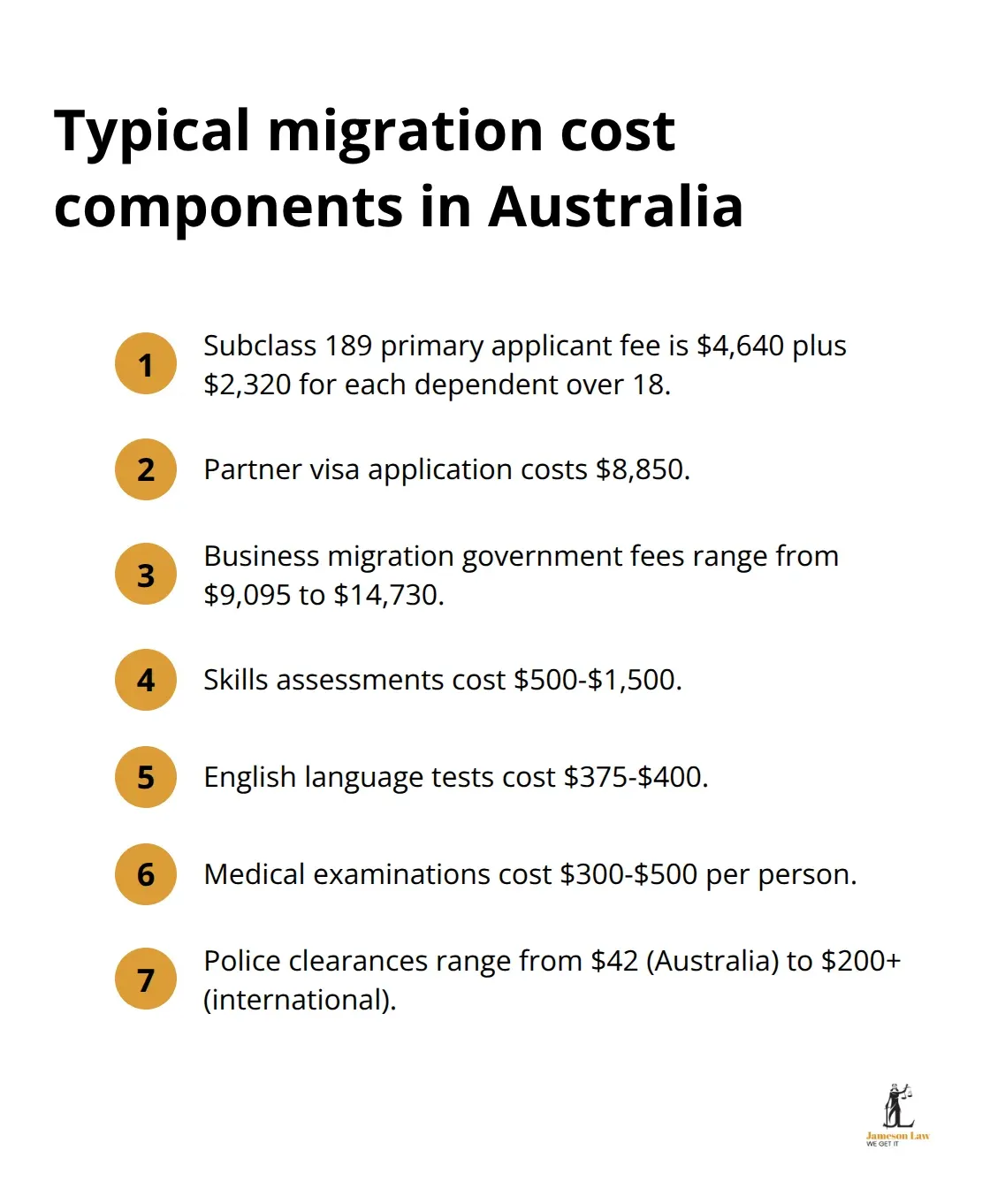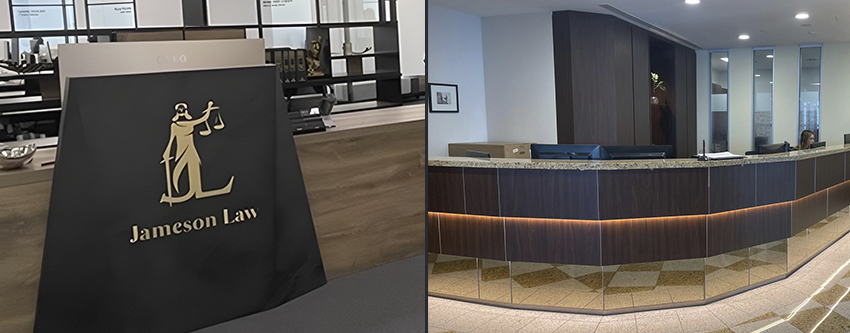Australia’s immigration landscape has shifted significantly, with new policies and streamlined processes taking effect this year. Migration to Australia 2025 presents fresh opportunities for skilled workers, families, and investors.
We at Jameson Law break down the complete process, from initial assessment to final approval. This guide covers updated requirements, realistic timelines, and costs you need to budget for your Australian dream.
Which Visa Pathway Suits Your Situation
Australia’s migration system operates through three primary channels, each with distinct requirements and processing approaches. The skilled migration pathway dominates with over 160,000 visas allocated for 2025, targeting professionals under 45 years old through a competitive points system. The minimum threshold remains 65 points, but successful applicants typically score 80-90 points due to high competition. Key factors include age, English proficiency, work experience, and qualifications assessment.

Skilled Migration Remains Most Competitive
The points system underwent refinements in 2025, with stronger emphasis on English language scores and Australian qualifications. IELTS scores of 8.0 across all bands now provide maximum points, while PTE and TOEFL equivalents follow similar benchmarks. Occupation lists continue to prioritise healthcare workers, IT professionals, and engineers (reflecting Australia’s labour shortages). Regional skilled visas offer additional points and faster processing, which makes them attractive alternatives to metropolitan pathways.
Family Visas Face Extended Wait Times
Partner and family reunion visas account for approximately 60,000 places annually, with processing times varying based on application complexity. Partner visas require comprehensive evidence of genuine relationships, including joint financial commitments, shared accommodation history, and records of communication. The income threshold for sponsors increased to reflect current economic conditions, which makes financial preparation essential for applicants.
Business Migration Targets High-Value Investors
Business and investment visas target entrepreneurs and investors who commit substantial capital to Australian ventures. The Global Talent program streamlines applications for individuals in technology, engineering, and innovation sectors. These pathways require demonstrated business success, significant investment capacity, and alignment with Australia’s economic priorities. Processing times vary significantly based on the complexity of business proposals and investment structures (particularly for large-scale ventures).
Once you identify your pathway, the next step involves understanding the detailed requirements and documentation process that each visa category demands.
What Documents and Tests Must You Complete
The migration process demands three mandatory assessments before you submit any visa application. Skills assessment represents the first hurdle, with designated authorities that evaluate your qualifications against Australian standards. Engineers Australia processes engineering applications, while the Australian Computer Society handles IT professionals with similar timeframes.

These assessments cost between $500-$1,500 and require original qualification documents, employment references, and detailed career summaries. The Department of Home Affairs maintains strict requirements that your nominated occupation matches your assessed skills exactly.
English Language Tests Deliver Maximum Points
IELTS Academic remains the gold standard, though PTE Academic and TOEFL iBT provide equivalent pathways. You achieve 20 points with 8.0 across all IELTS bands, while 7.0 scores provide 10 points. Test results remain valid for three years from the test date. The Australian Department of Home Affairs accepts only tests taken within this validity period (which makes timing critical for your application strategy).
SkillSelect System Controls Invitation Rounds
Expression of Interest submission through SkillSelect costs nothing but requires precision. The system ranks candidates by points score, with monthly invitation rounds that target the highest scorers first. Current data shows successful Subclass 189 invitations require 85-95 points, significantly above the 65-point minimum. State nominations through Subclass 190 visas offer additional points but restrict settlement to nominating states for two years.
Medical Examinations Follow Strict Protocols
Health assessments must occur at approved panel physicians, with costs that range from $300-$500 per person. The Department of Home Affairs provides a specific list of required examinations based on your country of residence and visa subclass. Chest X-rays, blood tests, and medical history reviews form standard requirements. Results remain valid for 12 months, though some conditions require specialist assessments that extend processing times considerably.
Police Clearance Certificates Complete Your Profile
Character assessments require police clearance certificates from every country where you lived for 12 months or more since age 16. Australian Federal Police certificates cost $42 and process within 10 working days (for standard applications). International certificates vary in cost and processing time, with some countries requiring up to six months for completion. These documents must remain current throughout your application process.
With all assessments complete, you can calculate the total investment required for your Australian migration journey.
How Much Will Your Australian Migration Cost
Migration expenses reach $15,000-$30,000 per family, depending on your chosen pathway and professional assistance requirements. Government application fees form the largest expense component, with Subclass 189 skilled visas that cost $4,640 for primary applicants plus $2,320 for each dependent over 18 years.

Partner visas demand $8,850 for the initial application, while business migration fees range from $9,095 to $14,730 based on investment categories. Additional costs include skills assessments at $500-$1,500, English language tests at $375-$400, medical examinations at $300-$500 per person, and police clearances that vary by country from $42 for Australian certificates to $200+ for international documents.
Professional Services Add Significant Value
Migration agents charge $3,000-$8,000 for complete application management, with complex cases that require higher fees. The Migration Agents Registration Authority reports that professional assistance provides valuable support compared to self-lodged applications. Legal representation becomes essential for business migration or cases that involve character concerns, with costs that range $5,000-$15,000. Document translation services cost $35-$50 per page for NAATI-certified translations, while qualification recognition through bodies like Engineers Australia or the Australian Computer Society adds $500-$1,500 to your budget.
Processing Times Vary Dramatically Across Categories
Current Department of Home Affairs data shows Subclass 189 applications process within 8-12 months, while state-nominated Subclass 190 visas complete in 6-10 months due to pre-screening. Partner visas face the longest delays at 12-18 months for temporary applications and 18-24 months for permanent stages. Business migration timelines stretch 12-15 months, with Global Talent applications that process faster at 3-6 months for priority sectors.
Regional Options Offer Faster Processing
Regional visas offer accelerated processing at 4-8 months, which makes them attractive alternatives despite location restrictions. Living expenses during application periods require $25,000-$40,000 per family based on Australian Bureau of Statistics cost-of-living data (with housing costs that consume 25-30% of household budgets in major cities). The September 2025 quarter recorded Living Cost Index rises between 0.6% and 1.5%, with housing and recreation as main contributors to increased expenses across most household types.
Final Thoughts
Migration to Australia 2025 demands strategic preparation and careful documentation. You must determine your occupation eligibility and calculate your points score before you proceed. Submit your skills assessment early, as authorities require several months to process applications.
The most expensive mistake involves incomplete applications that lack proper documentation. Expired test results, missing police clearances, and rushed skills assessments create significant delays. Many applicants fail to budget adequately for living expenses during processing periods (which extend 8-18 months across different visa categories).
We at Jameson Law provide comprehensive immigration assistance to help clients navigate complex Australian migration requirements. Australia continues to prioritise skilled workers in healthcare, technology, and engineering sectors. Regional pathways offer faster processing times and additional points compared to metropolitan alternatives.













